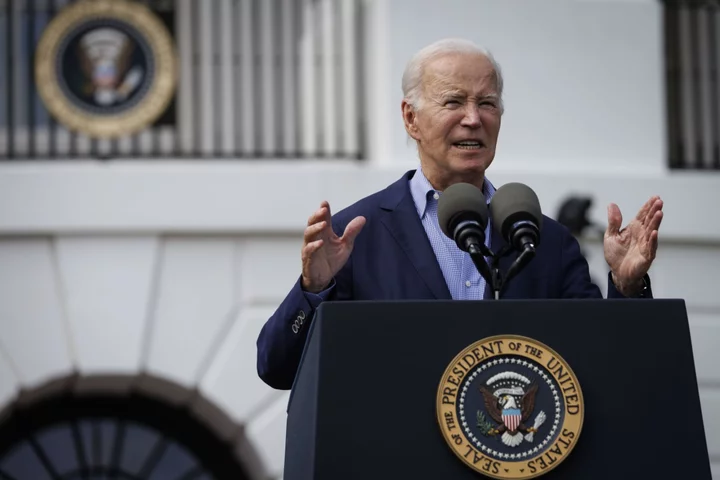A federal judge in Louisiana ordered key Biden administration officials and agencies not to contact social media platforms to suppress speakers and viewpoints they disagree with in a major development that could curtail efforts to combat misinformation about health and other issues.
The ruling came in a case filed by Louisiana and Missouri attorneys general, who had claimed that the Biden administration was trying to silence views and speakers who questioned its Covid policies and questioned the validity of the 2020 election.
US District Judge Terry A. Doughty in Monroe, Louisiana, said in the Tuesday ruling that large swaths of the government, including the Department of Health and Human Services and the Federal Bureau of Investigation, couldn’t talk to social media companies for “the purpose of urging, encouraging, pressuring, or inducing in any manner the removal, deletion, suppression, or reduction of content containing protected free speech.”
“The present case arguably involves the most massive attack against free speech in United States’ history,” Doughty wrote. “In their attempts to suppress alleged disinformation, the federal government, and particularly the defendants named here, are alleged to have blatantly ignored the First Amendment’s right to free speech.”
Doughty said in granting a preliminary injunction that the agencies couldn’t meet with the social media companies about removing specific posts or request reports about their efforts to take down content. The government can still notify the platforms about posts detailing crimes, national security threats or foreign attempts to influence elections, according to the ruling.
The Justice Department is reviewing the court’s injunction and will evaluate its options in this case, according to a White House official. The Biden administration has promoted responsible actions to protect public health, safety, and security when confronted by challenges like a deadly pandemic and foreign attacks on our elections, the official said in a statement.
Social media platforms must take into account of the effects their platforms are having on the American people, the official said.
Meta Platforms Inc. declined to comment. Twitter Inc. didn’t respond specifically to queries about the judge’s decision and Alphabet Inc.’s Google didn’t respond to a request for comment.
The New York Times reported earlier on the ruling.
US courts more and more are being asked to be the arbiters in conflicts over social media content, which has become increasingly divisive. Conservatives complain that the platforms censor their views, while Liberals insist the companies don’t do enough to take down false, misleading and harmful content.
GOP lawmakers have pivoted away from antitrust measures to address concerns with social media content to focus on investigating what they decry as conservative censorship.
One of the first legislative pushes in this direction was introduced earlier this year by the the heads of the Oversight and Accountability, Energy and Commerce, and Judiciary committees, who say Biden administration officials and other Democrats have pressured social media platforms to remove politically inconvenient content.
Read more: BGOV Bill Summary: House-Passed H.R. 140, Online Censorship
The measure, which is opposed by Democrats and unlikely to become law, would define censorship as influencing or coercing, or directing another to influence or coerce, to remove speech protected by the First Amendment on any interactive computer service, such as social media platforms. It would also include seeking to restrict an individual’s access to a platform or adding disclaimers to lawful speech.
The battle over social media mediation is likely to make it to the Supreme Court, which earlier this year delayed a review of Texas and Florida laws that would allow users to sue online platforms for alleged political censorship.
In 2021, Texas and Florida passed separate laws that made it illegal for tech platforms to block or demote content that violated their terms of service. The measures, which are currently blocked, would allow individual users to sue the companies in come cases for alleged political censorship.
The case is State of Missouri v. Biden, 3:22-cv-01213, US District Court, Western District of Louisiana (Monroe).
--With assistance from Priya Anand.

